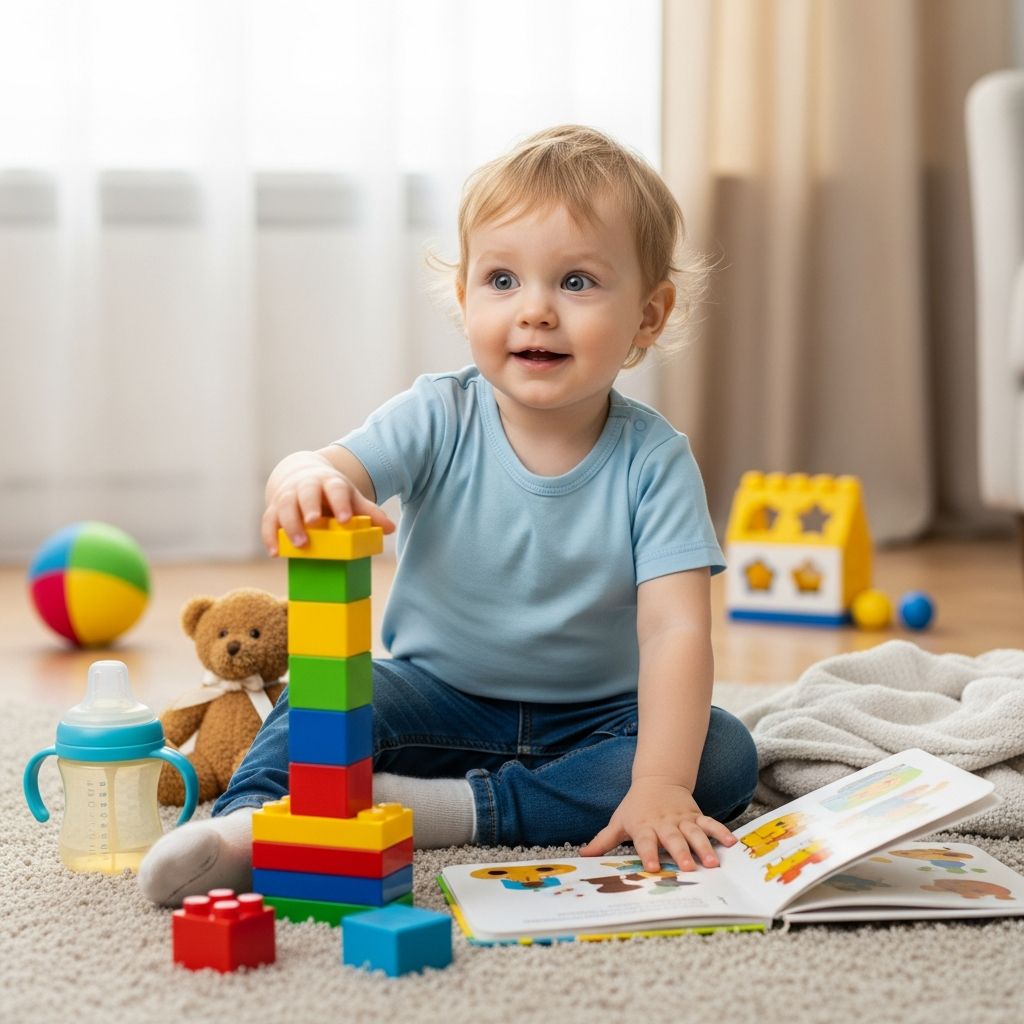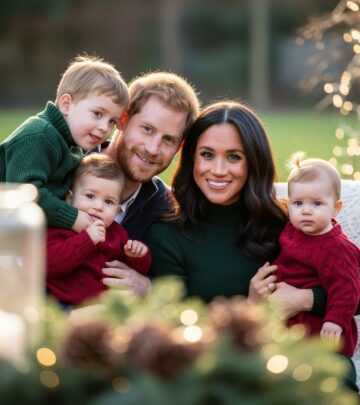19-Month-Old Development: Milestones, Sleep, Feeding, and Behavior
Your 19-month-old is growing fast! Explore key developmental milestones, sleep patterns, feeding tips, and behavior insights for this lively toddler stage.

At 19 months, your toddler is in a stage of rapid growth and discovery. This exciting age is marked by new skills, energetic exploration, and evolving emotional needs. Parents often find their 19-month-old developing a distinct personality, running everywhere, starting new words, and perhaps even displaying some early tantrums. This detailed guide covers what you should expect in terms of key milestones, average physical growth, daily routines, and answers to common toddler questions.
19-Month-Old Toddler Growth: Height and Weight
Wondering how your child’s growth compares? Here are the average sizes for a 19-month-old, based on World Health Organization data:
| Average Weight | Average Height | |
|---|---|---|
| Girls | 23.9 lbs (10.8 kg) | 32.2 in (81.8 cm) |
| Boys | 24.6 lbs (11.2 kg) | 32.8 in (83.3 cm) |
Remember, every child is unique and healthy children grow at their own pace. As long as your toddler’s height and weight consistently track along their growth curve set by your pediatrician, there is usually no cause for concern.
19-Month-Old Milestones
Most 19-month-olds are making big leaps in all areas of development. Here is a comprehensive look at typical milestones:
Physical Development
- Walking: Confidently running, climbing, and bending over to pick up toys from a standing position.
- Gross Motor Skills: Loves climbing onto furniture, can walk backwards, and often runs with enthusiasm (but may not yet stop or turn smoothly).
- Fine Motor Skills: Builds small block towers (2–4 blocks), attempts to feed themselves with a spoon, and drinks from a cup with or without a lid (though spills are common).
- Self-Help Skills: May help wash their hands or attempt to undress (removing hats, socks, or shoes).
- Ball Play: Starts tossing or rolling balls and enjoys riding small-wheeled toys.
- Teething: Upper canine teeth (cuspids) and lower first molars might be emerging, causing some discomfort.
Speech and Language
- Vocabulary: Understands and uses about 10 to 20 words; some children may have larger vocabularies (25–50 words is typical by 21 months).
- Combining Words: May start pairing words into simple phrases like “more juice” or “mama up.”
- Following Instructions: Can often follow two-step instructions, such as “Put your toy away and come here.”
- Repeating: Enjoys echoing words, humming tunes, or repeating rhymes.
- Pointing: Points to familiar people, objects, or body parts when asked.
Emotional and Social Development
- Independence: Wants to do things autonomously—picking out clothes, choosing snacks, or helping with daily routines.
- Possessiveness: Declares “mine” frequently and may have difficulty sharing toys with other children.
- Strong Emotions: Experiences big feelings like frustration, excitement, and anger, sometimes expressed through tantrums or aggression (hitting, biting).
- Attachment: May act shy around strangers; prefers familiar people and routines.
- Affection: Capable of showing affection, hugging loved ones or dolls, and linking words to feelings (“I’m sad”).
- Parallel Play: Plays alongside (but not with) other children, observing their actions and beginning to imitate them.
Intellectual or Cognitive Development
- Pretend Play: Engages in simple pretend play—talking on a toy phone, feeding a doll, or wearing a parent’s hat.
- Puzzle Skills: Can fit two- or three-piece jigsaw puzzles together.
- Choice-making: Enjoys picking between two toys or foods—building decision-making skills.
- Name Recognition: Recognizes their own face and can often pick themselves out in group pictures.
Feeding and Nutrition
- Feeding Themselves: Uses a spoon (though spills are common) and is developing skill with a fork.
- Drinks from Cups: Often drinks from an open cup or with a straw.
- Food Preferences: May ask for specific foods, show strong likes and dislikes, or go through fussy periods.
- Chewing: Chews with mouth closed and skillfully shifts food from side to side.
Potty Training Readiness
- May show early signs of readiness for toilet training, such as staying dry for longer spots or expressing interest in the potty, but most children aren’t ready for full training until after 2 years of age.
- Continue to introduce the idea using books or letting your toddler observe the process, but don’t force it yet.
Day-to-Day Life With a 19-Month-Old
Everyday routines are crucial for 19-month-olds, helping foster security and consistent growth. Here’s what to expect and consider:
Typical Daily Schedule
- Wake-Up: Often between 6:30–7:30 a.m.
- Breakfast: Shortly after waking, offering nutrient-dense foods (whole grains, fruit, dairy).
- Morning Activities: Free play, outdoor time, library or playgroup visits.
- Morning Snack: Around 10:00 a.m.; fruit, yogurt, or whole grain crackers.
- Lunch: Around 11:30–12:00.
- Nap: Most toddlers have one afternoon nap, typically 1–2 hours long, between 12:30 and 2:30 p.m.
- Afternoon Activities: More active play, story time, art projects.
- Dinner: 5:30–6:30 p.m.
- Bedtime Routine: Bath, stories, wind-down, with bedtime around 7:30–8:00 p.m.
Sleep Needs
- Most 19-month-olds sleep around 11–14 hours in 24 hours, including nighttime sleep and one afternoon nap.
- Night wakings may still occur, especially with teething or developmental leaps.
- Establishing a consistent, soothing bedtime routine helps toddlers wind down and sleep better.
Feeding Tips
- Offer a variety of healthy foods at regular meals and snacks; expect changing tastes and some picky eating.
- Let your toddler self-feed, even if it’s messy—this builds coordination and independence.
- Avoid forcing your child to eat; trust their hunger cues.
- Water and milk are preferred drinks at this age—limit juice and sugary beverages.
Behavior and Personality at 19 Months
At 19 months, distinctive temperament traits are becoming visible. Some toddlers are cautious, while others are fearless explorers. Alongside, you may encounter:
- Tantrums: Common at this stage, tantrums reflect growing independence mixed with frustration from limited language or self-control. Stay calm, offer comfort, and guide your toddler through difficult feelings.
- Biting/Hitting: Some toddlers may hit or bite out of frustration. Gently redirect, model gentle touch, and offer words for feelings.
- Curiosity and Risk: Increased mobility means greater curiosity. Childproof your home and monitor closely—toddlers love testing limits at this stage.
- Parallel Play: Enjoys playing near (but not necessarily with) peers. Full cooperative play is still many months away.
Helping Your Toddler Thrive: Parenting Tips
- Encourage exploration in safe, supervised environments, providing interactive toys and plenty of books.
- Set clear boundaries with simple, consistent rules (but expect your toddler to test them!).
- Praise efforts and milestones—positive reinforcement supports learning and self-esteem.
- Allow for choices when possible (such as picking between two outfits), giving your child a sense of control.
- Model polite behavior (please, thank you) and help your child practice early social skills.
When to Check with Your Pediatrician
Children develop at their own pace, but discuss any concerns with your child’s doctor, especially if your 19-month-old:
- Isn’t walking independently
- Doesn’t speak at least a few words
- Has lost previous skills
- Doesn’t follow simple commands
- Repeatedly fails to make eye contact, point, or show interest in communication
Remember, you know your child best. Always seek early evaluation if developmental delays or regressions occur.
Frequently Asked Questions (FAQs)
Q: How many words should my 19-month-old be saying?
A: Most 19-month-olds use 10–20 words. Some may say fewer, while others might use up to 50 words or more. If you’re concerned about language development, talk to your pediatrician.
Q: How much should my 19-month-old sleep?
A: A typical 19-month-old needs 11–14 hours of sleep in 24 hours, including an afternoon nap of 1–2 hours.
Q: Is picky eating normal at 19 months?
A: Yes, picky eating is very common. Offer nutritious options, allow your toddler to self-feed, and try not to pressure them to eat.
Q: When should I start potty training?
A: Some children show readiness signs by 18–24 months, but most aren’t ready for full training until closer to 2–3 years. Introduce the concept gradually and follow your child’s cues.
Q: What should I do if my 19-month-old has tantrums?
A: Stay calm, ensure safety, and offer comfort. Help your toddler put words to their feelings. Consistency and patience are key as emotional regulation skills develop.
Q: Should I worry if my 19-month-old isn’t speaking much?
A: Some children develop speech later than others. If your child isn’t saying any words or has lost language skills they previously had, consult your pediatrician for guidance.
Additional Resources
- American Academy of Pediatrics: Toddler Development
- Centers for Disease Control: Developmental Milestones
- Local parenting groups and playgroups
Your 19-month-old is navigating a world full of wonder, challenging moments, and new achievements. Celebrate each step as your toddler continues to grow, learn, and share their unique self with you and the world around them.












